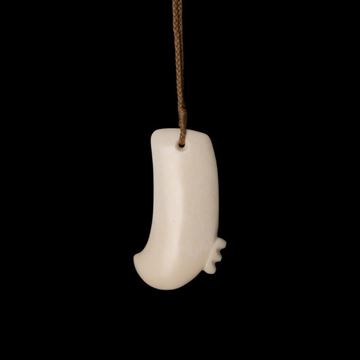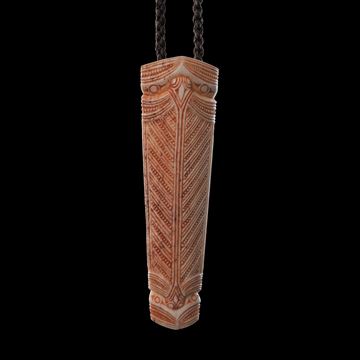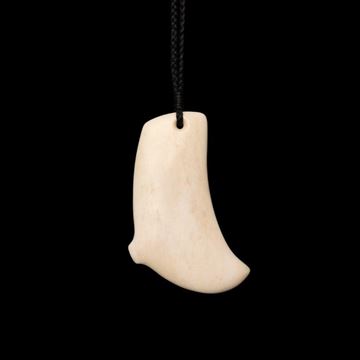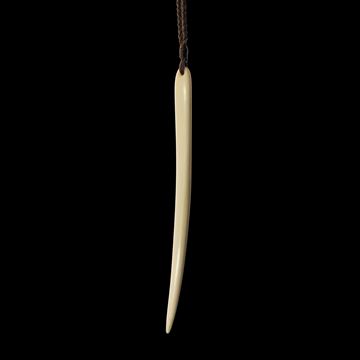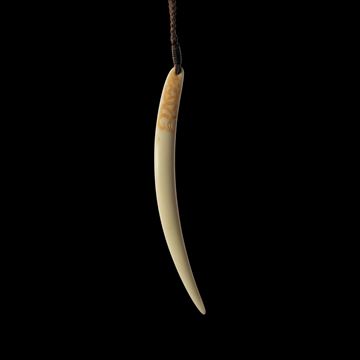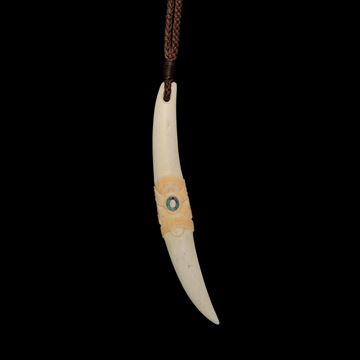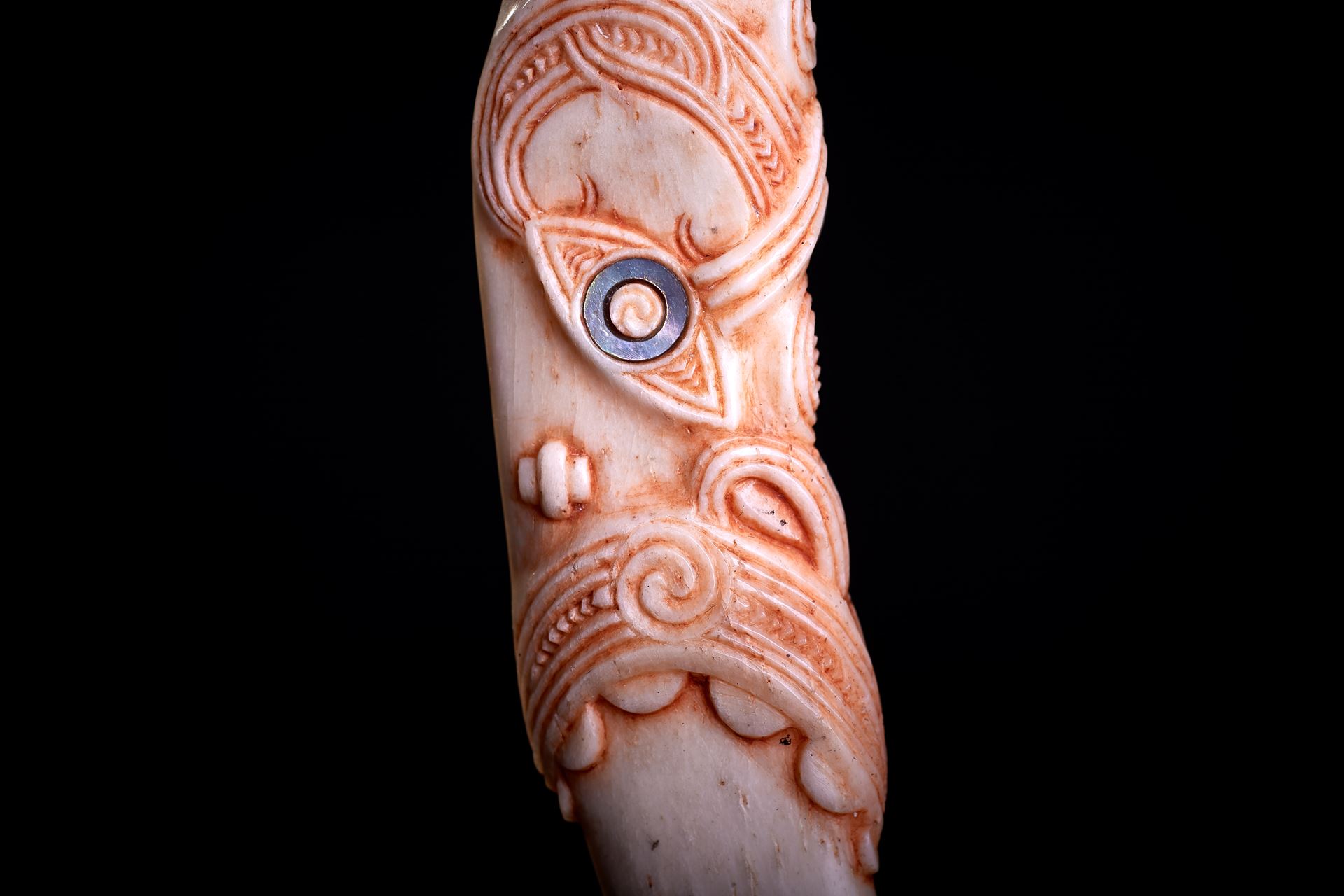
Wheua - Bone
At Te Takapū, students learn the revered tradition of carving pounamu (Nephrite-Jade/Greenstone), bone and stone. This tohu (qualification) is for two years and is approximately 40 hours per week, 47 weeks of the year.
Would you like something custom made especially for you? Commission a piece here
Rei Niho - 3789IA
The mark of a high Chief was one who wore the hei niho (whale tooth pendant), as the teeth of the sperm whale were highly prized because of their rarity. Usually these pendants had simply etched out eyes to form a head at one end. With actual whale teeth being such a rarity, it became common to fashion the tooth form from other materials.
Material: Koiwi (Beef Bone)
Measurements: 67mm x 40mm
$250.00
Rei Niho - 5477MA
The mark of a high Chief was one who wore the hei niho (whale tooth pendant), as the teeth of the sperm whale were highly prized because of their rarity. Usually these pendants had simply etched out eyes to form a head at one end. With actual whale teeth being such a rarity, it became common to fashion the tooth form from other materials.
Material: Koiwi (Beef Bone)
Measurements: 90mm x 25mm x 12mm
$690.00
Rei Niho - 5266IA
The mark of a high Chief was one who wore the hei niho (whale tooth pendant), as the teeth of the sperm whale were highly prized because of their rarity. Usually these pendants had simply etched out eyes to form a head at one end. With actual whale teeth being such a rarity, it became common to fashion the tooth form from other materials.
Material: Koiwi (Beef Bone)
Measurements: 60mm x 33mm x 4mm
$220.00
Autui - 6142HF
Autui were customarily used as a pin for fastening cloaks and may be made from bone, stone, wood or shell. They may also have been worn through the ear as an earring or around the neck as a pendant. Autui are still commonly worn as pendants and earrings and as with most Māori personal adornments, are often passed down generationally.
Material: Koiwi (Beef Bone)
Measurements: 125mm x 10mm x 4mm
$320.00
Autui - 6144HF
Autui were customarily used as a pin for fastening cloaks and may be made from bone, stone, wood or shell. They may also have been worn through the ear as an earring or around the neck as a pendant. Autui are still commonly worn as pendants and earrings and as with most Māori personal adornments, are often passed down generationally.
Material: Koiwi (Beef Bone)
Measurements: 106mm x 9mm
$390.00
Aurei Koruru - 5441KH
Aurei were customarily used as a pin for fastening cloaks and may be made from bone, stone, wood or shell. They may also have been worn through the ear as an earring or around the neck as a pendant. Aurei are still commonly worn as pendants and earrings and as with most Māori personal adornments, are often passed down generationally.
Material: Koiwi (Beef Bone)
Measurements: 124mm x 18mm x 10mm
$1,250.00

